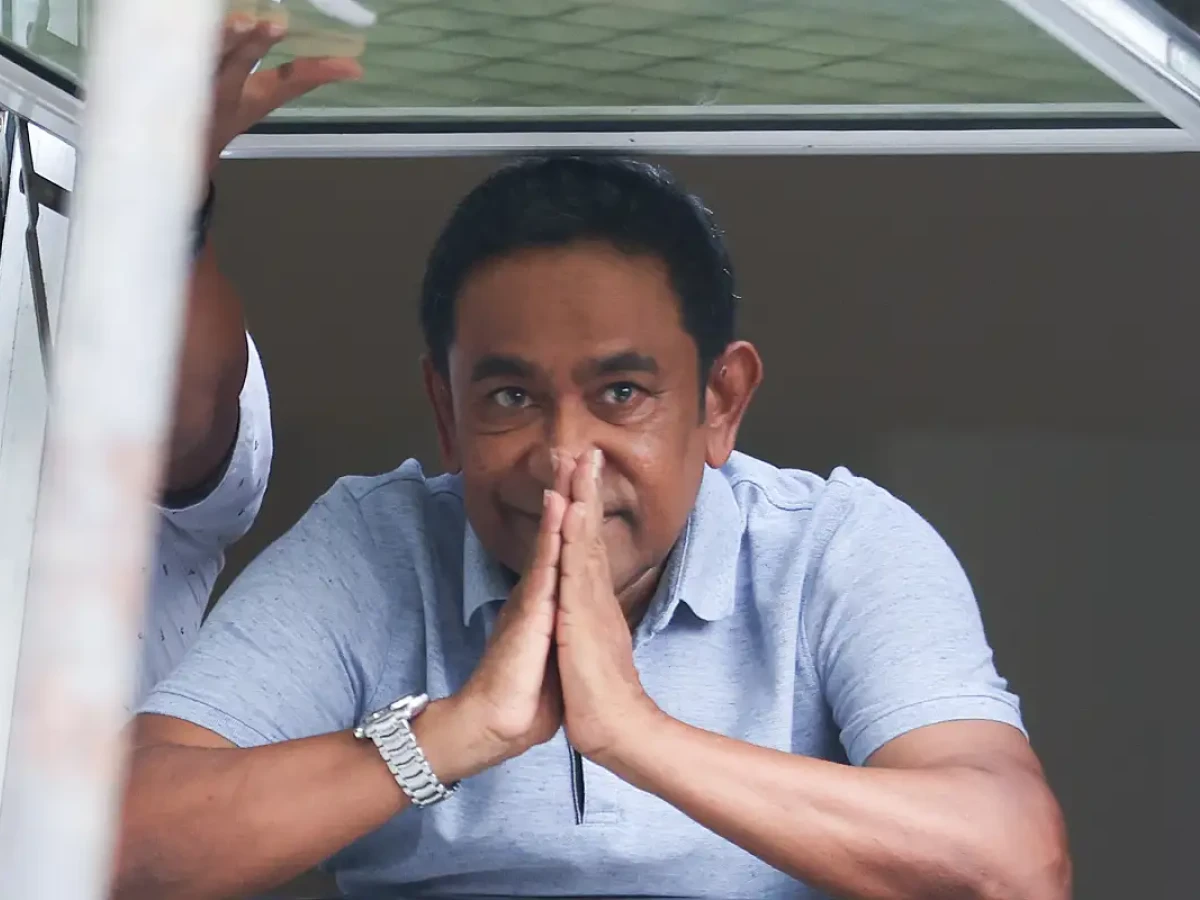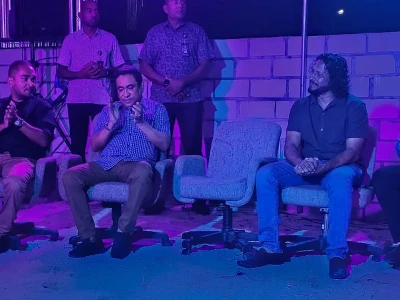
Yameen's graft appeal hearings conclude
Regarding the money laundering charges, Jameel said the money laundering charges cannot be proved unless the bribery is proved.
Top Stories
By
Fathmath Ahmed Shareef
The appeal hearings against the 11-year jail sentence handed down to former President Abdullah Yameen in connection with the V. Aarah lease transaction have concluded. With this, the verdict will then be heard.
Yameen's 11-year jail sentence handed down on December 25 was appealed in the High Court on February 21. After that:
-
March 15 - Appeal resubmitted as there were amendments to be made to the appeal form
-
June 7 - Court hearings begin, -about three months after the case was filed
-
After three hearings in the case, the hearings were adjourned in July after two judges of the bench went on leave
-
August 16 - Hearings resumed
-
26 October - Hearings adjourned again
The hearings resumed on 9th of this month after a month of absence. The two days of hearings that followed were to clarify the issues that the court needed to clarify. To conclude the hearings, a hearing was held on Tuesday to give the involved parties the opportunity to speak.
Presiding Justice Hassan Shafiu concluded the hearing which started at 2 pm on Tuesday and said that the hearings in the case have been concluded and if no further clarification is required, the verdict will be handed down.
The judge did not give a date for the hearing.
On Tuesday, the involved parties were given the opportunity to speak.
-
30 minutes each for the defense and the State to speak regarding the judgment appealed by Naeem
-
One hour each for the defense and the prosecution for the two judgments appealed by Yameen
When given the opportunity to speak, Yameen's senior counsel, Dr Mohammed Jameel Ahmed, representing him in the bribery case, said that the prosecution has not been able to prove the elements of the charge of accepting a bribe.
Yameen's defense mainly argued that the lower court used the testimony of the then Tourism Minister Ahmed Adheeb and the then MMPRC Managing Director Ziyath to prove the charges.
Jameel said the two had testified that they could be granted relief under an agreement with the state and the PG had agreed to re-decide on framing of charges on the basis of evidence from the investigation -based on the information provided in the agreement. Therefore, the counsel reiterated that the testimony cannot be accepted as the two accused had deposed in the hope of a particular concession.
"The result of excluding the testimony of Adheeb and Ziyath is that the prosecution cannot sustain the charges without it. When the testimony of the two is excluded, the remaining evidence also collapses”.
Regarding the money laundering charges, the lawyer said the money laundering charges cannot be proved unless the bribery is proved.
The way the case is sought to be decided by Yameen’s defense is as follows:
-
To determine that there is insufficient evidence to prove the case
-
Money laundering and bribery charges should be declared unfounded and both convictions should be quashed
The reason for the complaint and the manner in which the case is sought to be resolved by Naeem’s lawyers:
-
The trial proceedings were poorly conducted and the lawyer was deprived of many rights; Therefore, the decision to admit new evidence was sought to be set aside
-
While one of the charges in the main law clause was not proved, it was found that the charge was proved when the offence was not proved and the lower court ordered a re-investigation of the case.
-
The Criminal Court judge's actions in determining the sentence were wrong; Naeem asked the High Court to rule on commutation of sentence
-
The lawyer pointed out that Naeem was not sentenced to any other punishment other than jail term
"Being accused by the state, the Criminal Procedure Code mandates that a charge sheet should be filed along with all the charges filed together. The weapons of the state have to be shown to us. Then we can brandish the weapon that we can use in response to it. When the weapons are shown, the judge will decide which of them to accept. There has to be equality of arms at the start of the trial. There should be no sudden weapon hidden on the way to the battle grounds," Naeem's lawyer Hamza Latheef said.
At the opportunity to make a final statement, the prosecution also sought a ruling that there was no reason to quash the lower court's judgment.
In Naeem's case, the state had sought a direction to conclude that the appeals filed by him were not within appeal guidelines. The reason cited by the state as the reason for the request was that the lower court judge's decision on the quantum of punishment was taken by exercising the discretion of the judge.




